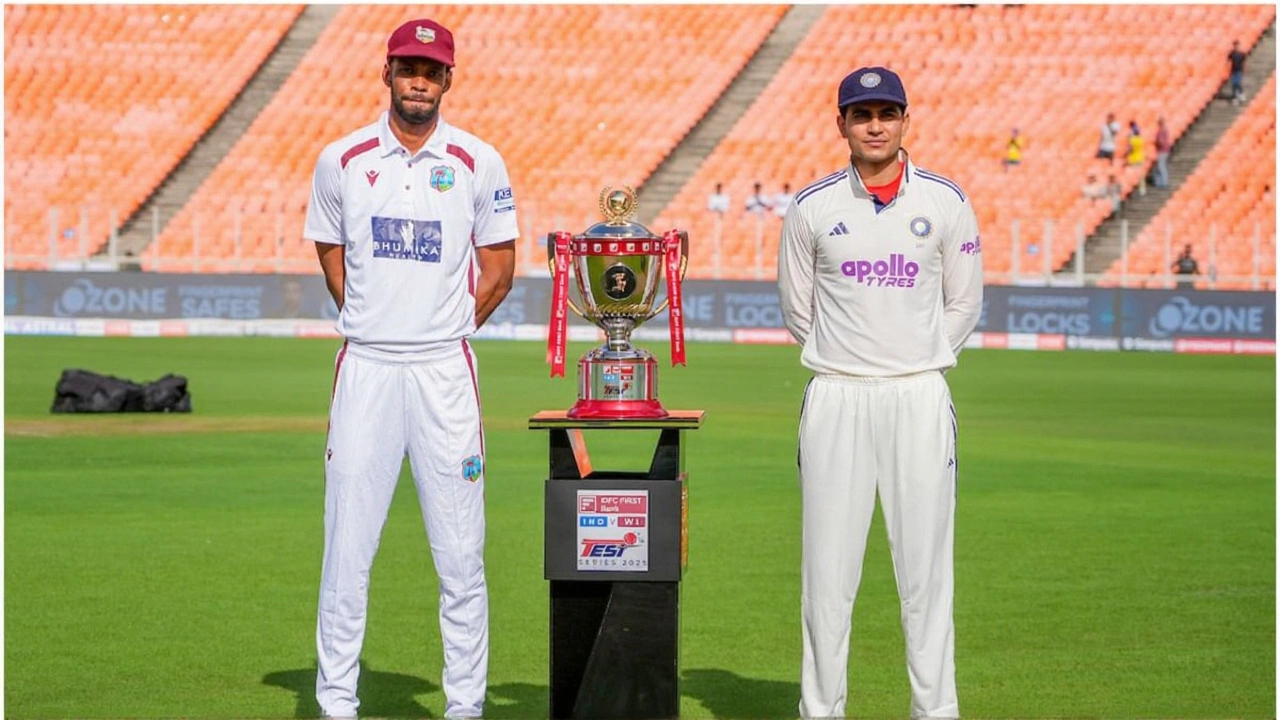Indian cricket team – Latest news, match analysis and historic moments
When you talk about Indian cricket team, the national side that represents India in international cricket, known for its passionate fan base and record‑breaking performances. Also called Team India, it competes in formats ranging from five‑day Test matches to the lightning‑fast T20 version. The squad blends veteran stars with emerging talent, meaning every series feels like a blend of experience and fresh energy. Fans expect big scores, sharp fielding and a never‑say‑die attitude, especially when the team steps onto a high‑stakes stage. In recent years the Indian cricket team has logged more than 1,200 international wins, a figure that reflects consistent dominance across all formats. That winning habit shapes expectations whenever the team lines up for a big tournament.
Key tournaments and venues shaping the Indian cricket team’s journey
The Asia Cup, a biennial T20 competition featuring Asian nations brings together rivals like the Sri Lanka cricket team, Sri Lanka's national side known for its spin attack and the Pakistan cricket team, Pakistan's side famous for its fast bowlers. The Indian cricket team participates in the Asia Cup, a T20 cricket showdown that determines the best side in Asia. Matches are often staged at world‑class venues such as the Dubai International Stadium, a premier cricket ground in the UAE that hosts international fixtures. This arena, with its flood‑lit pitch and roaring crowds, adds extra pressure, making every run and wicket count. The tournament follows the T20 cricket, a 20‑over per side version that emphasizes aggressive batting and quick results format, which demands rapid scoring and inventive bowling strategies. Success in T20 cricket requires flexible batting tactics, precise death‑over bowling, and sharp field placements – all skills the Indian cricket team hones during domestic leagues. The rivalry with Pakistan often turns the Asia Cup into a headline event; the Indian cricket team’s win‑or‑lose record against Pakistan adds another layer of excitement. Likewise, contests with Sri Lanka test the team’s ability to read spin on sub‑continental pitches, a crucial skill when the competition moves to places like Dubai where the surface offers extra bounce. Each match in the Asia Cup therefore acts as a learning ground, feeding into the team's preparation for the World Cup and other global tournaments.
Looking ahead, the Indian cricket team’s schedule is packed with series, qualifiers and bilateral tours that will shape its world ranking. Upcoming fixtures against South Africa will test the side’s fast‑bowling depth, while a home series versus England will provide a platform for batsmen to fine‑tune their technique against swing. The team’s recent 202/5 score against Sri Lanka in the Super Four stage of the Asia Cup showed its ability to chase big totals under pressure, a trait that will be vital in the knockout rounds. Meanwhile, young players are already making a mark in domestic T20 leagues, signalling a pipeline of talent ready to step up when senior stars rest. All these elements combine to create a dynamic, ever‑evolving picture of Indian cricket. Below, you’ll find a curated collection of articles that break down the latest matches, offer tactical insights, and celebrate the moments that define the Indian cricket team’s exciting journey.
India dominate Day 2 as Rahul, Jurel, Jadeja each notch centuries
India surged to a 286‑run lead after Rahul, Jurel and Jadeja each hit centuries in Day 2 of the first Test at Ahmedabad, putting the hosts firmly in control of the series.

 Entertainment and Film Industry
Entertainment and Film Industry